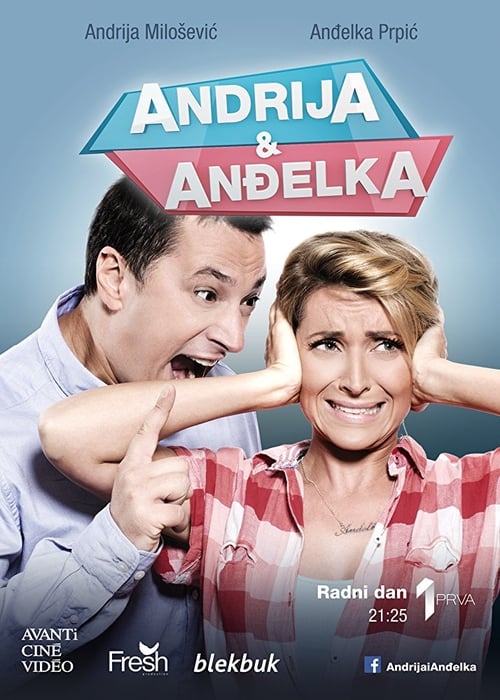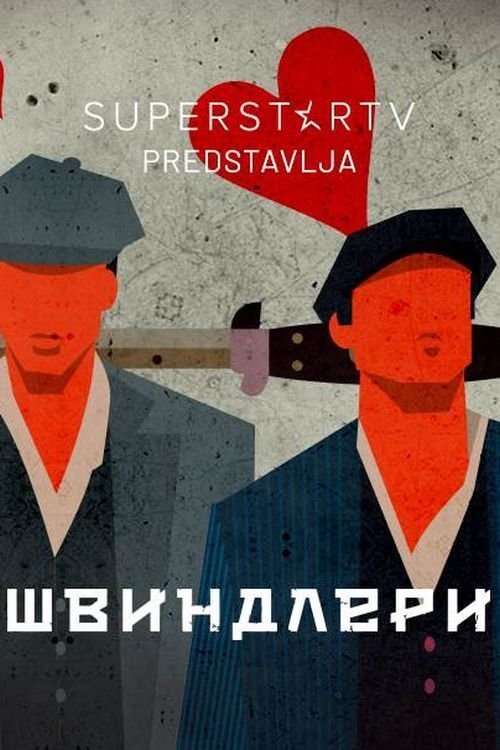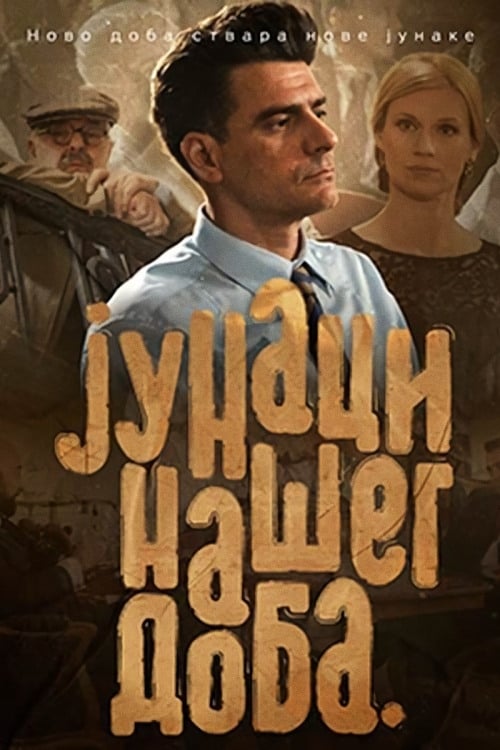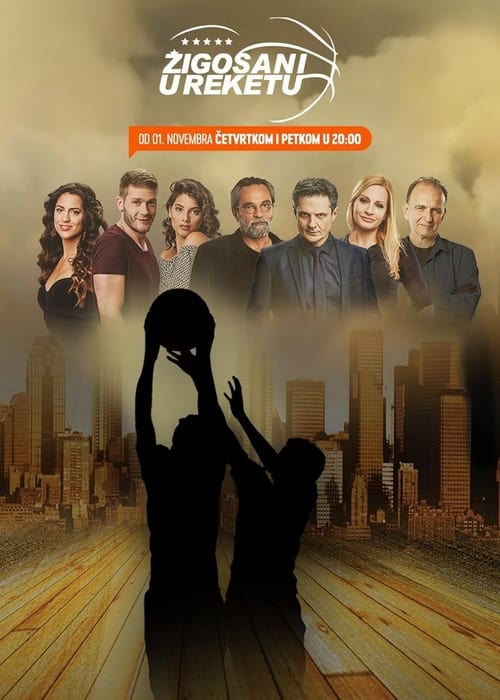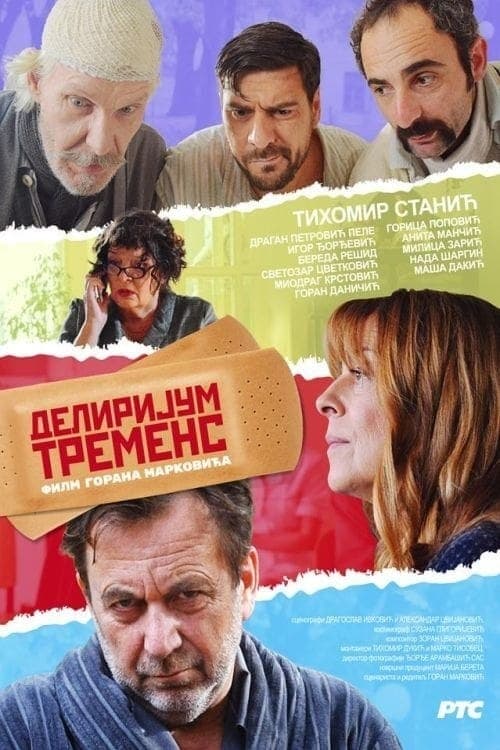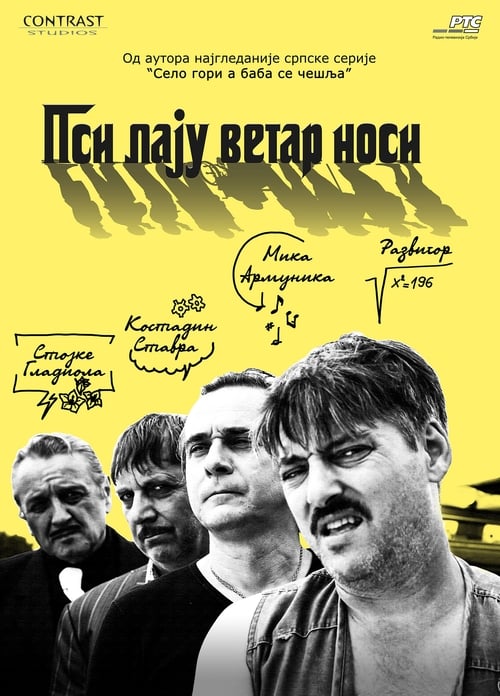
Ask Your Own Question
What is the plot?
In the opening scene of "Razvod, mirenje i Rosina medijacija," the atmosphere is tense as the family gathers in the living room. The episode begins with a heated discussion about the impending divorce between two central characters, which has been a source of conflict throughout the series. The camera captures the worried expressions on the faces of the children, who are caught in the middle of their parents' disputes. The mother, visibly distressed, expresses her frustration over the lack of communication and understanding from her husband, while he remains defensive, insisting that the divorce is the only solution.
As the scene shifts, we see the introduction of Rosa, a mediator brought in to help resolve the issues between the couple. Rosa is portrayed as calm and collected, with a professional demeanor that contrasts sharply with the emotional turmoil of the family. She begins her mediation session by encouraging both parents to express their feelings openly. The dialogue reveals deep-seated resentments and misunderstandings, with each parent blaming the other for the breakdown of their marriage. Rosa listens intently, taking notes and occasionally interjecting with probing questions to facilitate the discussion.
The mediation takes a turn when Rosa suggests a family meeting to include the children in the conversation. This proposal is met with resistance from the father, who fears that involving the children will only complicate matters further. However, the mother supports the idea, believing that the children deserve to have their voices heard. The tension escalates as the parents argue about the best approach, showcasing their differing priorities and emotional states. Rosa intervenes, reminding them that the children's well-being should be their primary concern.
In the next sequence, the family meeting is set up, and the children are brought into the living room. The atmosphere is heavy with anticipation as the parents prepare to discuss the divorce openly. The children, visibly anxious, sit on the couch, glancing at each other for reassurance. The mother begins by explaining the situation in a gentle manner, trying to soften the blow. She emphasizes that both parents love them and that the divorce is not their fault. The father, however, struggles to articulate his feelings and ends up sounding defensive, which causes further distress among the children.
As the discussion progresses, one of the children, a teenage boy, speaks up, expressing his anger and confusion about the divorce. He questions why their parents couldn't work things out and reveals his fear of losing the family unit. This moment is pivotal, as it highlights the emotional impact of the divorce on the children. The mother tries to comfort him, but the father remains distant, unable to connect with his son's pain. Rosa observes the dynamics closely, noting the emotional responses and the need for further mediation.
Following the family meeting, Rosa suggests individual sessions with each family member to delve deeper into their feelings. The mother agrees, eager to find a resolution, while the father reluctantly consents, still grappling with his emotions. The individual sessions reveal more about each character's internal struggles. The mother shares her feelings of betrayal and loneliness, while the father expresses his frustration over feeling misunderstood and unappreciated. Rosa skillfully navigates these sessions, helping each character articulate their emotions and fostering a sense of empathy among them.
As the episode progresses, the tension between the parents continues to simmer. A pivotal moment occurs when the father confronts the mother about her perceived lack of support during their marriage. This confrontation escalates into a heated argument, with both parties raising their voices and airing grievances that have been buried for years. Rosa intervenes, reminding them of the purpose of the mediation and the importance of maintaining a civil dialogue for the sake of their children.
In the climax of the episode, Rosa proposes a joint activity for the family to engage in, hoping to rebuild some semblance of unity. The parents are hesitant, but the children express enthusiasm for the idea, eager to spend time together as a family. The scene shifts to a park where the family participates in a group activity, attempting to bond despite the underlying tension. The camera captures moments of laughter and joy, but also the awkwardness and discomfort that linger beneath the surface.
The episode concludes with a poignant moment as the family sits together on a park bench, reflecting on the day's events. The parents share a brief moment of connection, hinting at the possibility of reconciliation, but the unresolved issues remain palpable. Rosa watches from a distance, hopeful yet aware that the journey toward healing is far from over. The final shot lingers on the family's faces, capturing a mix of hope and uncertainty as they navigate the complexities of their new reality.
What is the ending?
In the ending of "Mamini sinovi," season 1, episode 5 titled "Razvod, mirenje i Rosina medijacija," the episode concludes with a tense mediation session led by Rosa. The characters confront their emotional turmoil and unresolved conflicts, leading to a mix of reconciliations and lingering tensions. The episode ends with a sense of uncertainty about the future of the relationships involved, particularly between the couples facing divorce.
As the episode unfolds, we find ourselves in a brightly lit mediation room, where Rosa, a skilled mediator, prepares to facilitate a session between the couples embroiled in conflict. The atmosphere is thick with tension as the participants enter, each carrying their own emotional baggage.
Scene 1: The Arrival The camera pans over the faces of the couples, revealing their apprehension. We see Marko, visibly anxious, fidgeting with his hands, while his estranged wife, Ana, enters with a determined yet guarded expression. The contrast in their body language sets the stage for the emotional confrontation that is about to unfold.
Scene 2: The Mediation Begins Rosa introduces herself and explains the purpose of the mediation. Her calm demeanor contrasts sharply with the charged emotions in the room. She encourages the couples to express their feelings openly. Marko starts to speak, his voice trembling as he recounts the pain of their separation. Ana listens, her eyes narrowing, reflecting a mix of hurt and anger.
Scene 3: Unpacking the Issues As the session progresses, Rosa guides the couples through their grievances. Marko and Ana's arguments surface, revealing deep-seated issues of trust and betrayal. The camera captures close-ups of their faces, highlighting the raw emotions--tears welling in Ana's eyes as she recalls moments of happiness overshadowed by their conflicts. Marko's frustration boils over, and he raises his voice, pleading for understanding.
Scene 4: Moments of Reflection Rosa interjects, urging them to reflect on their shared history. She prompts them to remember the love that once brought them together. The scene shifts to flashbacks of happier times, juxtaposed with the current tension. This technique emphasizes the stark contrast between their past and present.
Scene 5: A Turning Point As the mediation continues, a breakthrough moment occurs when Ana reveals her vulnerability, admitting her fears about the future. Marko, taken aback, softens his stance. The atmosphere shifts slightly, as both begin to see each other not just as adversaries but as individuals who have suffered.
Scene 6: The Decision The session culminates in a pivotal moment where Rosa asks each couple to consider what they truly want. Marko expresses a desire to reconcile, while Ana, still hesitant, contemplates the possibility of rebuilding their relationship. The tension hangs in the air as they weigh their options.
Scene 7: The Aftermath As the mediation concludes, the couples leave the room with mixed emotions. Marko and Ana share a tentative moment of connection, but the uncertainty remains palpable. The camera lingers on their faces, capturing the complexity of their feelings--hope intertwined with fear.
In the final moments, Rosa reflects on the session, acknowledging the challenges ahead for the couples. The episode ends on a note of ambiguity, leaving viewers to ponder the fate of each character. Marko and Ana's relationship hangs in the balance, while Rosa's role as a mediator highlights the complexities of love, conflict, and the possibility of healing. The screen fades to black, leaving the audience with a sense of unresolved tension and the hope for future reconciliation.
Is there a post-credit scene?
In the episode "Razvod, mirenje i Rosina medijacija" of "Mamini sinovi," there is no post-credit scene. The episode concludes without any additional content after the credits roll, focusing instead on the resolution of the main plot points and character arcs presented throughout the episode. The narrative wraps up the themes of divorce, mediation, and the emotional turmoil faced by the characters, leaving viewers with a sense of closure on the events that transpired in this particular episode.
What role does mediation play in the episode 'Razvod, mirenje i Rosina medijacija'?
In this episode, mediation is a central theme as the characters navigate the complexities of divorce. Rosina, a mediator, attempts to facilitate communication between the estranged couple, highlighting the emotional turmoil and misunderstandings that arise during the process.
How do the characters react to Rosina's mediation techniques?
The characters exhibit a range of emotions towards Rosina's mediation techniques. Some are initially resistant, feeling that their grievances are too deep to be resolved through dialogue. However, as the session progresses, moments of vulnerability emerge, revealing their underlying desires for reconciliation.
What specific conflicts arise between the couple during the mediation session?
During the mediation session, specific conflicts arise regarding custody of the children, financial responsibilities, and lingering feelings of betrayal. These conflicts are exacerbated by past grievances, leading to heated exchanges that Rosina must navigate carefully.
How does the episode explore the theme of family dynamics through the mediation process?
The episode explores family dynamics by showcasing how the couple's issues affect their children and extended family. The mediation process reveals not only the couple's struggles but also how their decisions impact their children's emotional well-being, prompting reflections on familial responsibilities.
What emotional breakthroughs occur for the characters during the episode?
Emotional breakthroughs occur when the couple begins to express their true feelings about their marriage and the pain of separation. Moments of honesty lead to tears and realizations about their love for their children, ultimately shifting the tone of the mediation from confrontation to a more collaborative approach.
Is this family friendly?
"Mamini sinovi," particularly in the episode titled "Razvod, mirenje i Rosina medijacija," deals with themes of divorce and mediation, which may be sensitive topics for children or those who are sensitive to familial issues.
Potentially objectionable or upsetting aspects include:
-
Divorce Discussions: The episode centers around the emotional turmoil and conflicts that arise during divorce proceedings, which may be distressing for younger viewers or those with personal experiences related to family separation.
-
Emotional Confrontations: There are scenes featuring intense emotional exchanges between characters, showcasing anger, sadness, and frustration, which could be overwhelming for sensitive viewers.
-
Conflict Resolution: The mediation process may involve discussions that highlight misunderstandings and grievances, which could be uncomfortable for children to witness.
-
Family Dynamics: The portrayal of strained family relationships and the impact of divorce on family members can evoke feelings of sadness or anxiety.
Overall, while the show may not contain explicit content, the emotional weight of the themes presented could be challenging for younger audiences or those sensitive to such topics.


